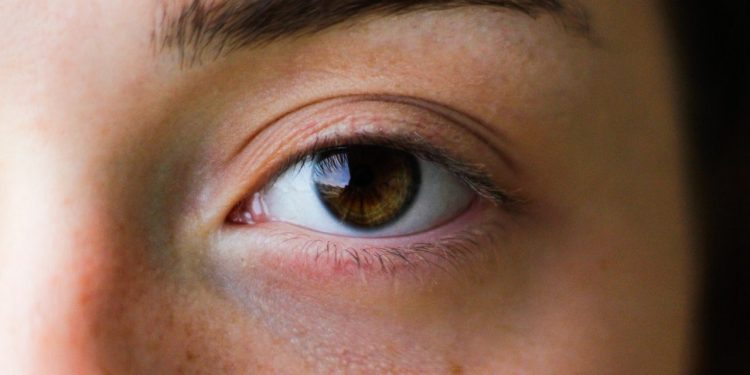We’ve all heard the term beauty sleep at least once in our lives. Whether it was from a well-meaning parent, a skincare guru, or even the latest wellness influencer, the idea that sleep holds the key to radiance and vitality seems universally accepted. But is there any truth to it? Can sleep actually transform your skin, restore your youthful glow, and make you look fresh and rejuvenated the next day? Or is beauty sleep just another catchy marketing term with no real scientific backing?
In this article, we’ll delve into the science behind beauty sleep, explore how sleep impacts skin health, and uncover tips to ensure you make the most of your nighttime rest.
The Science Behind Sleep and Skin Health
At the most basic level, sleep is essential for the body’s repair and restoration processes. During sleep, the body undergoes several restorative functions, such as cell regeneration, tissue repair, and hormone production. This includes the skin, our body’s largest organ.
Skin cells regenerate more quickly at night than during the day. In fact, studies have shown that skin undergoes its most active healing phase when we sleep, especially during the deeper stages of the sleep cycle. This makes sense when you consider the fact that most of the skin’s damage from daily exposure to sunlight, pollution, and environmental stressors occurs during the daytime. Sleep provides the perfect opportunity to repair this damage and refresh the skin.

How Sleep Affects Skin Regeneration
When we sleep, our body’s circulation improves, which means that more oxygen and nutrients are delivered to the skin. This is essential for skin regeneration, and the more you sleep, the better the circulation. Here’s how sleep enhances skin health:
- Cell Turnover: Skin cells have a natural turnover cycle, where old skin cells are replaced by new ones. During the night, this process accelerates, as the body is not using energy to perform other activities. The rapid replacement of old skin cells leads to a smoother, more radiant complexion.
- Collagen Production: Collagen is a protein responsible for the skin’s elasticity, strength, and firmness. Research suggests that during deep sleep (especially REM sleep), collagen production increases. This helps fight wrinkles and sagging, keeping skin looking youthful.
- Reduced Inflammation: Sleep plays a crucial role in reducing inflammation and oxidative stress in the body. Poor sleep quality, on the other hand, can exacerbate skin issues like acne, redness, and eczema. Inadequate sleep also increases the production of cortisol, the stress hormone, which can lead to the breakdown of collagen and elastin fibers.
- Enhanced Hydration: While we sleep, our body conserves water, which is vital for keeping the skin hydrated. Adequate hydration leads to plumper, more radiant skin, while dehydration can cause the skin to appear dry, flaky, and dull.
Sleep Duration and Skin Health: How Much is Enough?
Not all sleep is created equal. While 7 to 9 hours of sleep per night is generally recommended for most adults, the quality of sleep matters just as much as the quantity. Poor sleep can have negative consequences on your skin’s appearance and overall health, regardless of how many hours you spend in bed.
- Under-sleeping (Less than 6 hours): Chronic sleep deprivation can leave you with a dull complexion, dark circles under your eyes, and an increased risk of developing fine lines and wrinkles. Lack of sleep also weakens the skin’s natural barrier, making it more susceptible to damage from environmental factors.
- Optimal Sleep (7–9 hours): This is the sweet spot for skin regeneration. Studies have shown that getting the right amount of sleep boosts the skin’s ability to repair itself and maintain a youthful appearance. With adequate sleep, skin looks smoother, brighter, and more resilient.
- Oversleeping (More than 9 hours): Interestingly, oversleeping can also have adverse effects on your skin. Some studies suggest that consistently getting too much sleep may lead to inflammation, which can cause skin issues like acne and rashes. Additionally, oversleeping can throw off the body’s circadian rhythm, affecting overall skin health.
The Role of Sleep Stages in Skin Repair
Sleep isn’t just one long, undifferentiated block of time. It consists of several stages, including light sleep, deep sleep, and REM sleep. Each of these stages plays a distinct role in repairing the body, and they all contribute to skin health in different ways.
- Light Sleep (NREM Stage 1 and 2): In the early stages of sleep, your body begins to slow down, and the muscles relax. Though this stage doesn’t offer as much cellular repair as the deeper stages, it still helps with hydration and helps the body prepare for restorative processes.
- Deep Sleep (NREM Stage 3): This is the critical stage for skin regeneration. During deep sleep, the body releases growth hormones that promote cell repair, including skin cells. This is when collagen production is at its peak, and skin damage from environmental exposure is repaired.
- REM Sleep: During REM sleep, your body experiences the highest levels of cellular activity. This phase promotes emotional well-being and further supports the immune system, helping your skin fight off inflammation, acne, and other irritations.

How Poor Sleep Affects Your Skin
We’ve established that sleep is essential for skin health, but what happens when we don’t get enough? Poor sleep doesn’t just leave you feeling groggy; it can also have a visible impact on your skin. Here’s how inadequate sleep can affect your complexion:
- Dull and Lifeless Skin: Sleep deprivation leads to a reduction in circulation, meaning your skin doesn’t receive the oxygen and nutrients it needs to look vibrant. This often results in a tired, dull complexion.
- Dark Circles and Puffy Eyes: Lack of sleep causes fluid retention, leading to puffiness around the eyes and the formation of dark circles. This is because the body struggles to remove toxins while you’re awake, and they build up around your delicate under-eye skin.
- Breakouts and Acne: When you don’t sleep well, your cortisol levels rise, which can trigger inflammation and lead to an increase in sebum production. This excess oil can clog pores and result in acne and other skin breakouts.
- Fine Lines and Wrinkles: Chronic sleep deprivation accelerates the breakdown of collagen, leading to the formation of fine lines and wrinkles. The skin also loses its elasticity, contributing to sagging over time.
- Weakened Skin Barrier: Sleep deprivation compromises your skin’s natural defense mechanism, making it more vulnerable to environmental damage, dehydration, and irritation.
Tips for Maximizing Your Beauty Sleep
To harness the full benefits of sleep for your skin, it’s important to not only prioritize getting enough rest but also create an environment that encourages quality sleep. Here are some tips to help you maximize your beauty sleep:
- Stick to a Consistent Sleep Schedule: Going to bed and waking up at the same time every day helps regulate your body’s internal clock, leading to better sleep quality.
- Create a Relaxing Bedtime Routine: Wind down with activities like reading, meditation, or a warm bath to signal to your body that it’s time to sleep.
- Optimize Your Sleep Environment: Make sure your bedroom is cool, dark, and quiet. A comfortable mattress and soft, breathable bedding can also improve sleep quality.
- Limit Screen Time Before Bed: Blue light from phones, tablets, and computers can interfere with your body’s production of melatonin, making it harder to fall asleep. Try to avoid screens for at least 30 minutes before bed.
- Hydrate, but Don’t Overdo It: Drink enough water throughout the day to stay hydrated, but try to avoid drinking large amounts right before bed to prevent waking up in the middle of the night.
- Mind Your Diet: Eating a balanced diet rich in vitamins and antioxidants can help your skin repair itself during sleep. Foods like berries, leafy greens, and nuts can boost collagen production and fight oxidative stress.
Conclusion: Beauty Sleep is Real, But It’s Not Magic
While the concept of beauty sleep may sound like something out of a fairy tale, there’s plenty of science to back it up. Sleep is essential for skin health, as it accelerates skin regeneration, boosts collagen production, and helps reduce inflammation. Consistently getting the right amount of high-quality sleep can improve your skin’s appearance, reduce the formation of fine lines, and keep you looking fresh and glowing.
However, it’s important to remember that beauty sleep is just one piece of the puzzle. Good skincare, a balanced diet, and proper hydration all contribute to achieving a radiant complexion. So, while sleep is an essential ingredient in the recipe for beautiful skin, it’s certainly not the only one.












































